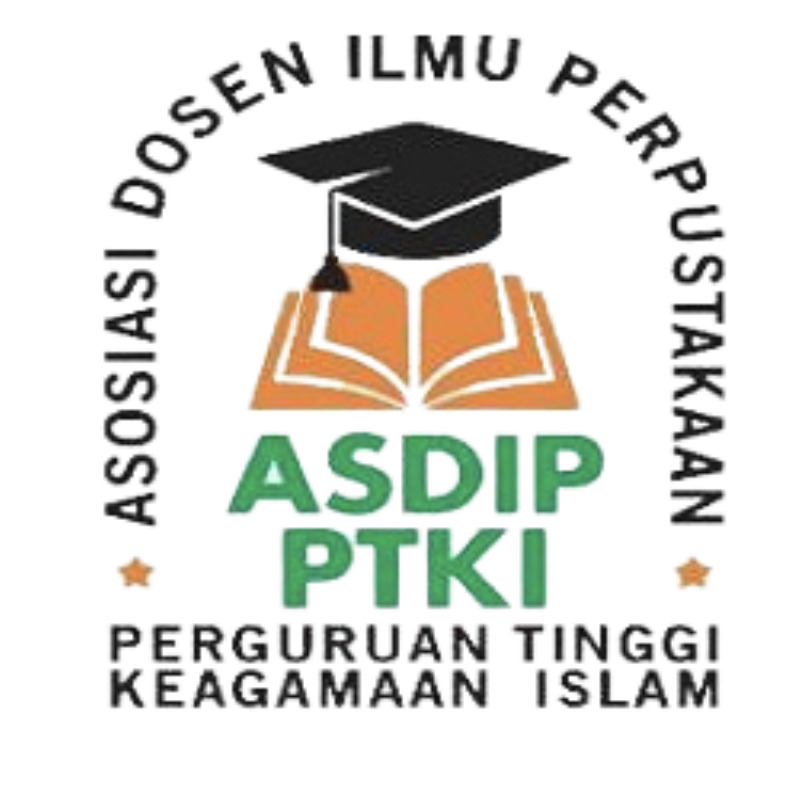Kemampuan Literasi Digital Orang Tua Dalam Mengasuh Anak: Studi Kasus Di Desa Curug, Gunung Sindur, Bogor
DOI:
https://doi.org/10.29240/tik.v7i2.7086Keywords:
Islamic parenting, digital parenting, digital literacyAbstract
This research aims to find out parents' abilities in Islamic parenting,  their digital literacy skills, and whether there is an influence of Islamic parenting skills on parents' digital parenting skills. This research was carried out with a quantitative approach using simple regression analysis. Respondents in this study totaled 58 people. The sampling technique used was a purposive sampling technique where the respondents selected were parents who met 2 main criteria. First, parents already have children who are at least 3 years old and above. Second, parents have the ability to use cell phones or other gadgets to access the internet. The research results show that parents' abilities in Islamic parenting are very high, reaching a score of 3.34. Likewise, in terms of digital parenting, parents' abilities are also quite high because they reach a score of 3.1. Then regarding the question of whether there is an influence of Islamic parenting skills on digital parenting, the answer is that there is a very significant influence, namely 0.81344502 from the results of using the Pearson product-moment formula.
Downloads
References
Ba, H., Tally, W., & Tsikalas, K. (2002). Investigating children’s emerging digital literacies. The Journal of Technology, Learning, and Assessment, 1(4), 5-48.
Badissy, M. (2016). Motherhood in the Islamic Tradition Rethinking the Procreative Function of Women in Islam, 13(1), 131–156. https://doi.org/10.1515/mwjhr-2016-0019
Belshaw, D.A.J., 2011, What id “Digital Literacy�, Durham University, United Kingdom.
Brooks, J. (1987)The Process of Parenting (2nd Ed). Palo Alto, CA: Mayfield, Carroll, J. M., Holliman, A. J., Weir, F., & Baroody, A. E. (2018). Literacy interest, home literacy environment and emergent literacy skills in preschoolers, 0(0), 1–12. https://doi.org/10.1111/1467-9817.12255
Ebrahimi, E., & Firoozi, A. F. (2019). The Impacts of Parenting Style and Perceived Childhood Attachment on Children ’ s Concept of God, 13(1), 1–5. https://doi.org/10.5812/ijpbs.1579.Original
Franceschelli, M., Brien, M. O., & Brien, M. O. (2014). http://soc.sagepub.com/ “Islamic Capital†and Family Life: The Role of Islam in Parenting, (February). https://doi.org/10.1177/0038038513519879
Fraenkel, Jack R. Wallen, Norman E. and Hyun, Helen H (2012). How to Design and Evaluate Research ini Education. New York: Mc Graw Hill.
Gewirtz, A. H., Snyder, J., Zamir, O., Zhang, J., & Zhang, N. (2019). Effects of the After Deployment : Adaptive Parenting Tools ( ADAPT ) intervention on fathers and their children : A moderated mediation model, 1837–1849. https://doi.org/10.1017/S0954579419001238
Gilster. 1997. Digital Literacy. New York: Wiley
Günindi, Y., Şahin, F., & Demircioğlu, H. (2012). Functions of the family: Family structure and place of residence. Energy Education Science and Technology Part B: Social and Educational Studies, 4, 549–556.
Marty, P. F., Alemanne, N. D., Mendenhall, A., Maurya, M., Southerland, S. A., Sampson,V., Douglas, I., Kazmer, M. M., Clark, A., Schellinger, J. (2013). Scientific inquiry, digital literacy, and mobile computing in informal learning environments. Learning, Media and Technology, 38(12), 407-428
Milenkova, V., & Keranova, D. (2020). Digital Skills and New Media and Information Literacy in the Conditions of Digitization, 1, 65–72. https://doi.org/10.1007/978-3-030-20135-7
Morrison, A. K., Glick, A., & Yin, H. S. (2019). Health Literacy : Implications for Child Health, 40(6). https://doi.org/10.1542/pir.2018-0027
Philosophy, L. (2019). Information in the Age of Misinformation : Counteracting the Problems of Online Radicalization with Digital Literacy.
Pattah, S. H., & Al-, K. K. (2014). Literasi Informasi : Peningkatan Kompetensi Informasi Dalam Proses Pembelajaran.
Rahmawati, S. W., & Jagakarsa, U. T. (2018). Holisctic Parenting: Pengasuhan Religius berlandaskan Konsep Islam, (June 2017).
Riany, Y. E., Haslam, D., Musyafak, N., Farida, J., Ma’arif, S., & Sanders, M. (2019). Understanding the role of parenting in developing radical beliefs: Lessons learned from Indonesia. Security Journal, 32. https://doi.org/10.1057/s41284-018-00162-6
Scourfield, J., & Nasiruddin, Q. (2015). Child : Religious adaptation of a parenting programme : process evaluation of the Family Links Islamic Values course for Muslim fathers, 697–703. https://doi.org/10.1111/cch.12228
Smilkstein, G. (1980). The Cycle of Family Function : A Conceptual Model for Family Medicine, 11(2), 223–231
Ulwan, Abdulllah Nashih (2020). Pendidikan Anak Dalam Islam. Sukoharjo: Insan Kamil
Wijayanti, U., & Berdame, D. (2019). Implementasi Delapan Fungsi Keluarga di Provinsi Jawa Tengah. Jurnal Komunikasi, 11, 15. https://doi.org/10.24912/jk.v10i1.2475
Zhu, S., Hao, H., Macleod, J., Yu, L., & Wu, D. (2019). Investigating Teenage Students ’ Information Literacy in China : A Social Cognitive Theory Perspective. https://doi.org/
Downloads
Published
Issue
Section
Citation Check
License
Authors who publish with Tik Ilmeu : Jurnal Ilmu Perpustakaan dan Informasi agree to the following terms:
- Authors retain copyright and grant the journal right of first publication with the work simultaneously licensed under a Creative Commons Attribution-NonCommercial-ShareAlike 4.0 International License (CC BY-NC-SA 4.0) that allows others to share the work with an acknowledgment of the work's authorship and initial publication in this journal.
- Authors are able to enter into separate, additional contractual arrangements for the non-exclusive distribution of the journal's published version of the work (e.g., post it to an institutional repository or publish it in a book), with an acknowledgment of its initial publication in this journal.
- Authors are permitted and encouraged to post their work online (e.g., in institutional repositories or on their website) prior to and during the submission process, as it can lead to productive exchanges, as well as earlier and greater citation of published work (See The Effect of Open Access).







 This work is licensed under a
This work is licensed under a 